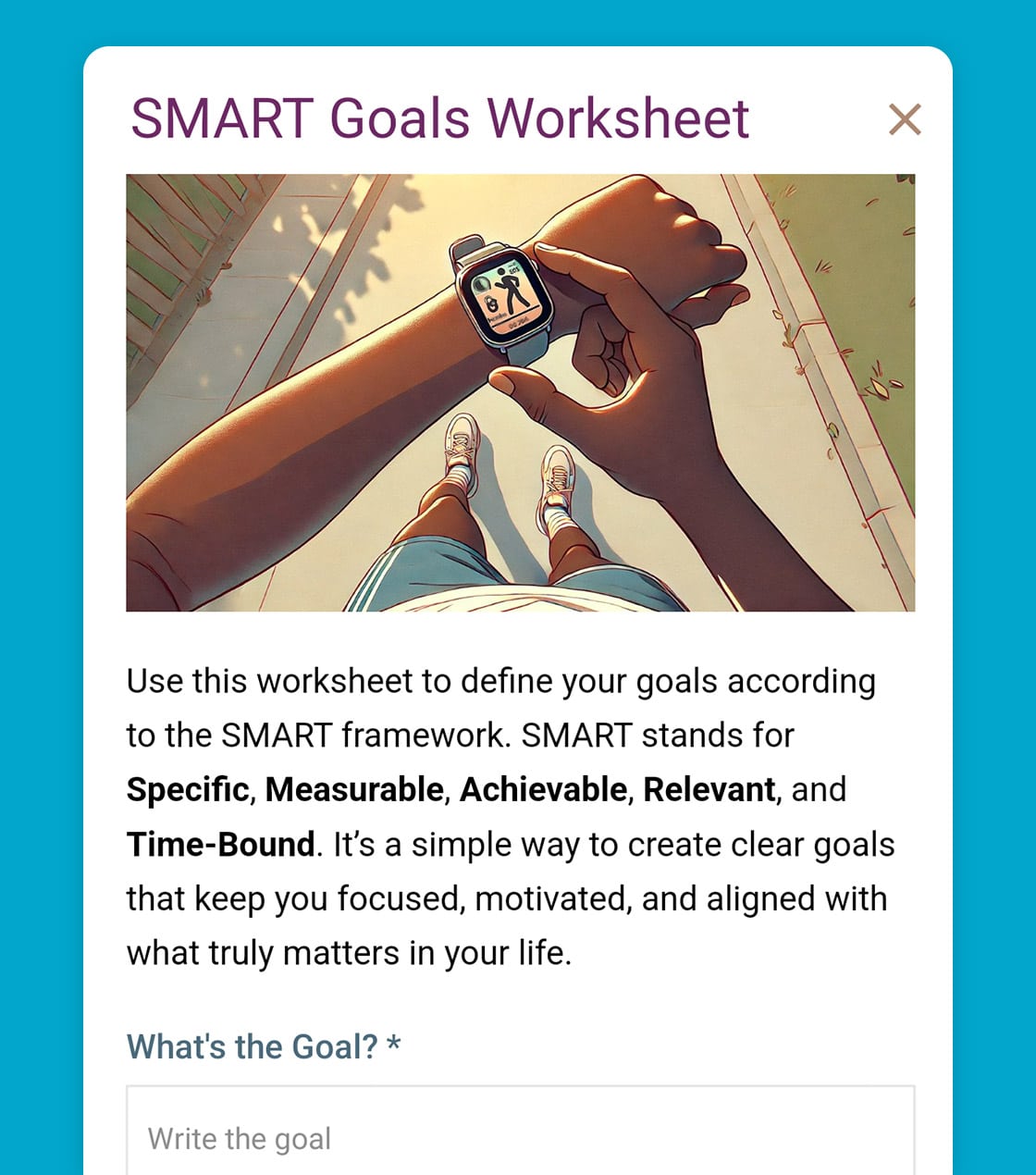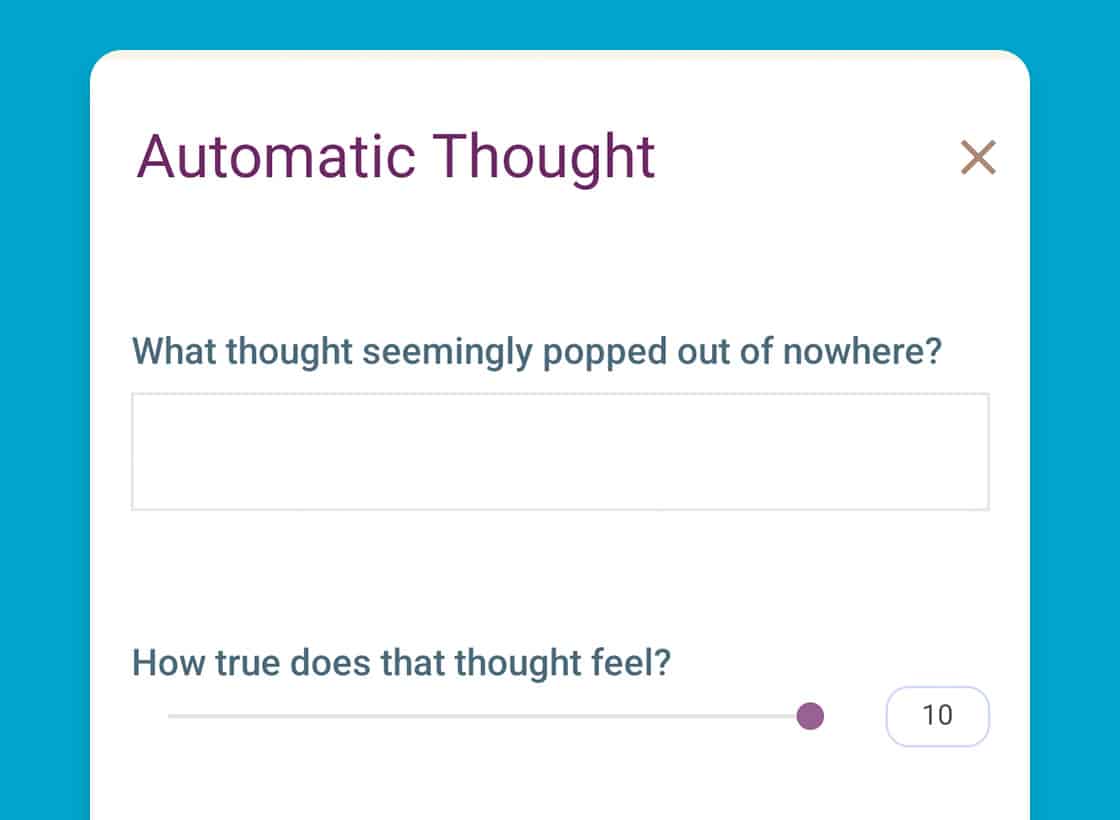SMART Goals Worksheet
Template by Reflective
Best for CBT En Solution Focused Motivational Interviewing Interpersonal
The SMART Goals Worksheet offers a hands-on approach to structuring personal milestones and shaping actionable steps. Designed to guide your clients and patients through the process of identifying what truly matters, this tool helps you outline precise targets that are measurable and realistically attainable.
By connecting these goals to your clients’ values and adding defined timelines, you gain motivation and a sense of purpose. Whether used in therapy, coaching, or personal self-improvement, this worksheet encourages consistent progress, streamlines decision-making, and fosters a sense of accountability—essential factors for cultivating positive change and long-term success.

Share the SMART Goals Worksheet with your client
Share the SMART Goals Worksheet with your client using the Reflective app so they can reflect on it and fill it in between sessions. Simply enter their email, and they’ll be able to read the handout from the convenience of their phone. Sign up for a Free trial!
How does Reflective work?
Share exercise with client via Reflective
Client receives email with app link and connection request
Client clicks link to download app
Client accepts your connection and exercises you shared
Client uses app to fill in exercises, gets reminders
SMART Goals Worksheet (Explanation for Therapists)
The SMART Goals Worksheet translates the foundational principles of the infosheet into tangible practice. Clients are guided to pinpoint the specifics of each goal—identifying exactly what they want to achieve, how they’ll measure success, and how they’ll handle potential roadblocks. This step-by-step approach is extremely valuable for individuals in CBT, or struggling with executive function disorders, such as ADHD and ADD. It also fits seamlessly into DBT strategies, where clear targets can be integrated into modules like distress tolerance or emotion regulation.
Because many presenting issues—such as anxiety, depression, or trauma-related concerns—can involve an avoidance of tasks or an all-or-nothing mindset, a structured worksheet breaks down large ambitions into digestible milestones. This not only reduces cognitive overload but also provides incremental success markers that improve self-esteem. Moreover, the process of filling out each section fosters self-reflection and nurtures insight into why a particular goal matters to the client, aligning action with core values—a central tenet in ACT and other values-based therapies.
When using this worksheet in session, encourage clients to think aloud about their motivations and challenges. Together, you can identify possible adjustments or extra support needed along the way. By ensuring that the goals are both realistic and personally meaningful, you foster a deeper sense of ownership and resilience. This empowerment boosts therapeutic alliance, sharpens focus, and sets a tone of collaboration that can significantly enhance outcomes in diverse clinical scenarios.


